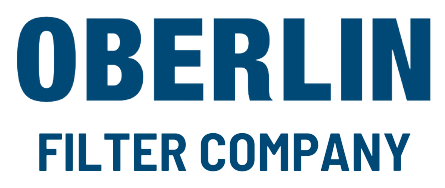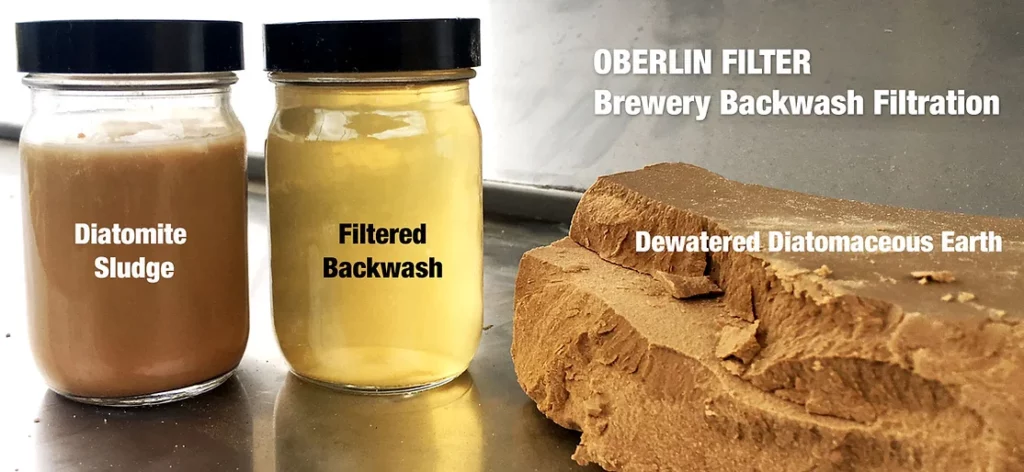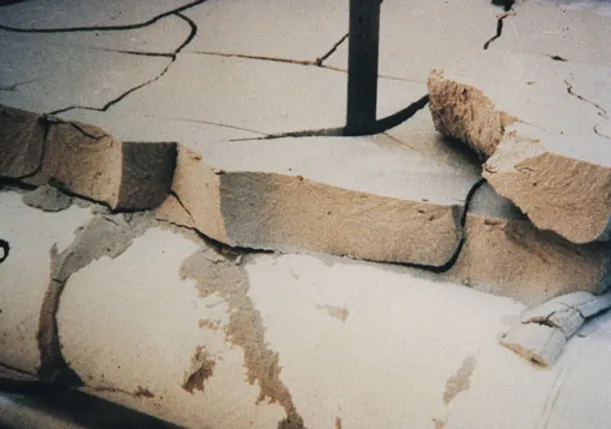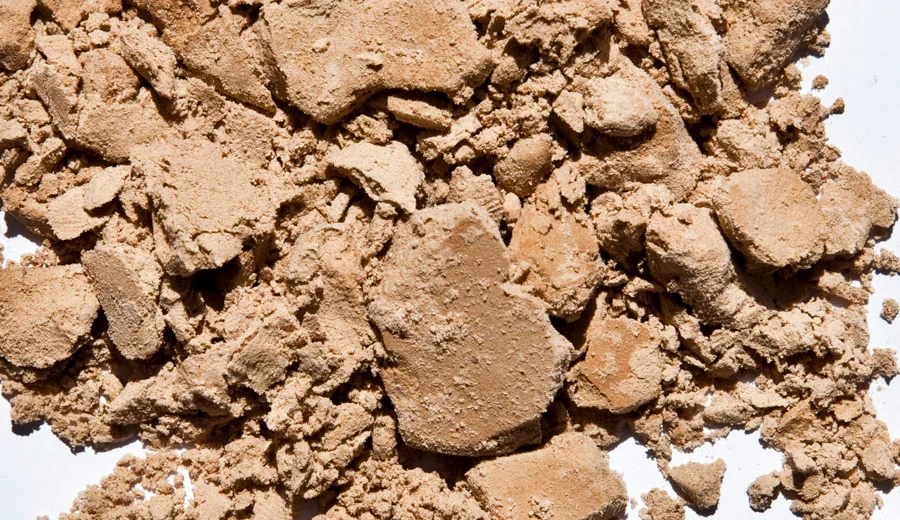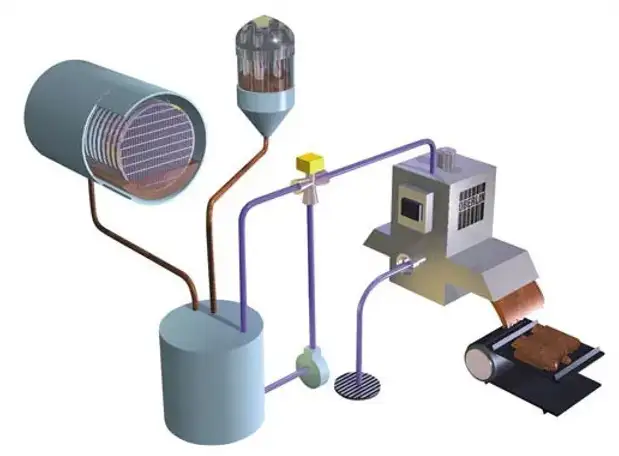Breweries & Sluice / Backwash Dewatering
Dewater Backwash / Sluice from Primary Process Filter
Sludge is a major economic and environmental concern. Sludge refers to the residual, semi-solid material waste produced by industrial wastewater or municipal water treatment processes. Large primary filters remove vast amounts of solids from large volumes of water. Sludge dewatering is the further separation process of solids from these waters. This is commonly the final step for cleaning wastewater from industries and water treatment plants. Sludge usually has a very high water percentage content that can be reclaimed through dewatering. The need for reduction of high liquid content sludge is becoming more evident as the volume of generated wastewater solids increases and becomes a growing concern to local municipalities and industry.
The Oberlin Filter’s ability to remove over 99% of solids from water leaving a dry cake makes it very effective in dewatering sludge. The filtered water is clean enough to be sent to municipal treatment facilities or to be recycled for reuse with industrial operations. The removed solids are extremely dry and acceptable for the landfill all while saving money in disposal costs.
A widely used sludge dewatering aid is Diatomaceous Earth. Diatomaceous Earth (DE) is the processed version of the skeletal remains of single celled plants called diatoms. It is used as a filter aid in various processes resulting in a large amount of wet slurry.
The Oberlin Filter is used as an excellent dewatering piece of equipment that enables the process of reclaiming the majority of liquid in the slurry leaving a Dry Cake of Diatomaceous Earth. Also known as Diatomite Sludge.
Breweries
Many breweries use DE to filter beer immediately before bottling. Nominal usage is ½ lb of DE per barrel of beer, which means large American breweries could use 5 million lbs of DE per year. The Oberlin Filter is used as an excellent dewatering process that reclaims all the liquid in the slurry leaving the Diatomaceous Earth in a dry cake. The discharged cake has a solids content of 45 to 50 percent (w/w). The clear filtrate contains less them 100PPMs solids. The water meets discharge limits for disposal into the sewer and the dry cake is ready for landfill.
Below are Two Breweries Using the Oberlin Filter in Their Sludge Dewatering Process.
Major Brewer
Streamlining Brewery Sludge Dewatering with Oberlin
Application is dewatering diatomite sludge from cleanout of primary beer filters. Contains diatomite solids and miscellaneous yeast solids. Water generated was clean enough to send to municipal water treatment facility.
Major Brewer
Irwindale, CA
Application is dewatering diatomite sludge from cleanout of primary beer filters. Contains diatomite solids and miscellaneous yeast solids. Water generated was clean enough to send to municipal water treatment facility.
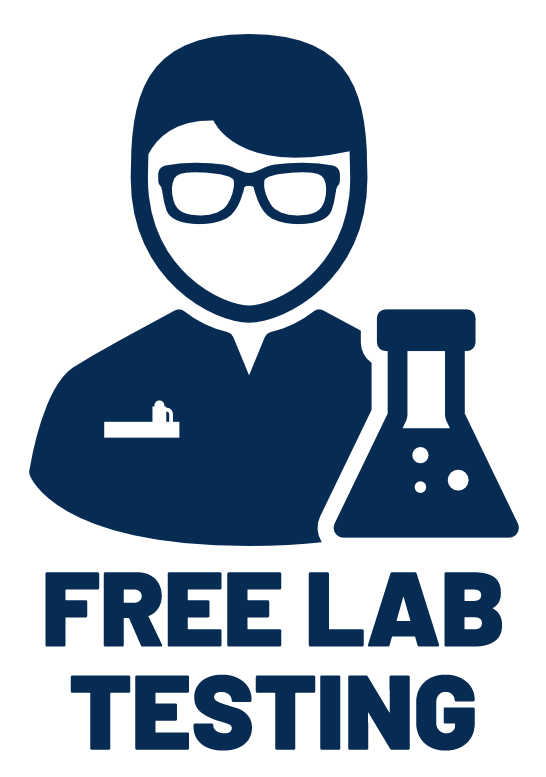
LET USPROVE IT!
At Oberlin, we're dedicated to providing not just any solution, but the best one for you. Provide a sample of your contaminated process fluid to us. We'll come back with a test report, showing our ability to ensure the cleanest fluid and the highest return on investment for your operations.
Oberlin Filter in a Brewery Installation
Dewatering diatomaceous earth from the back washing of a primary filter in a brewery installation.
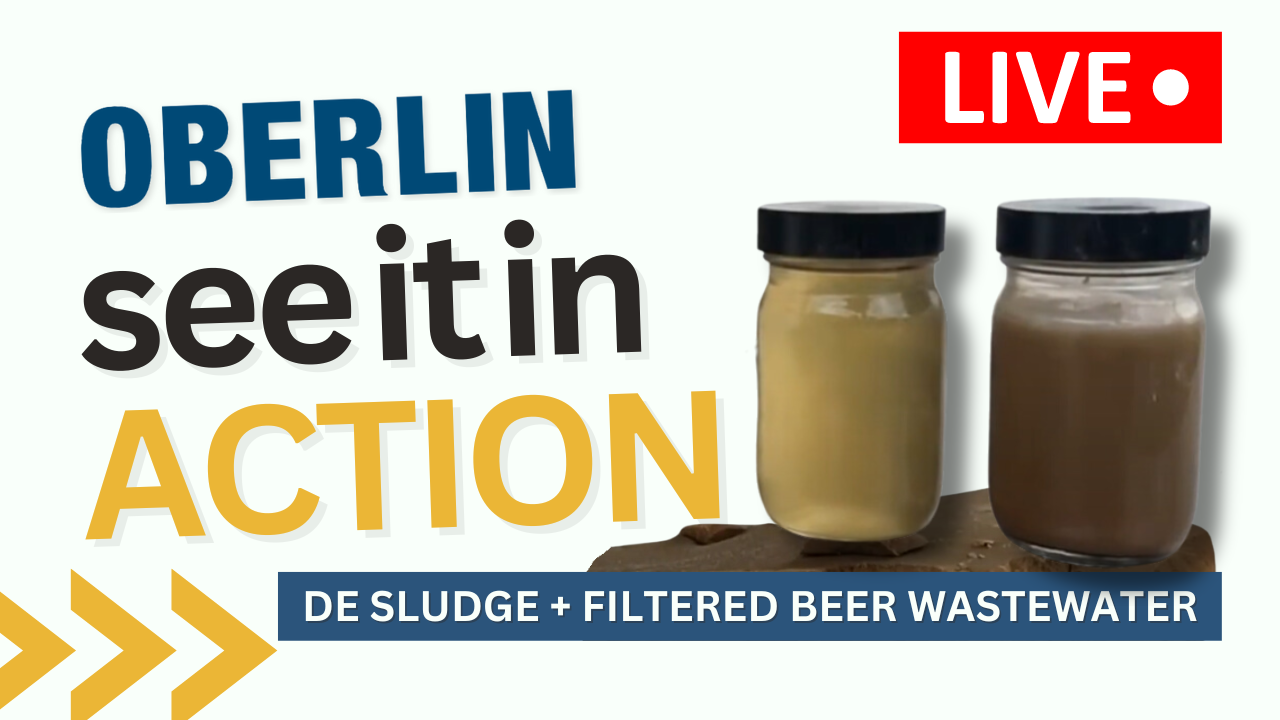
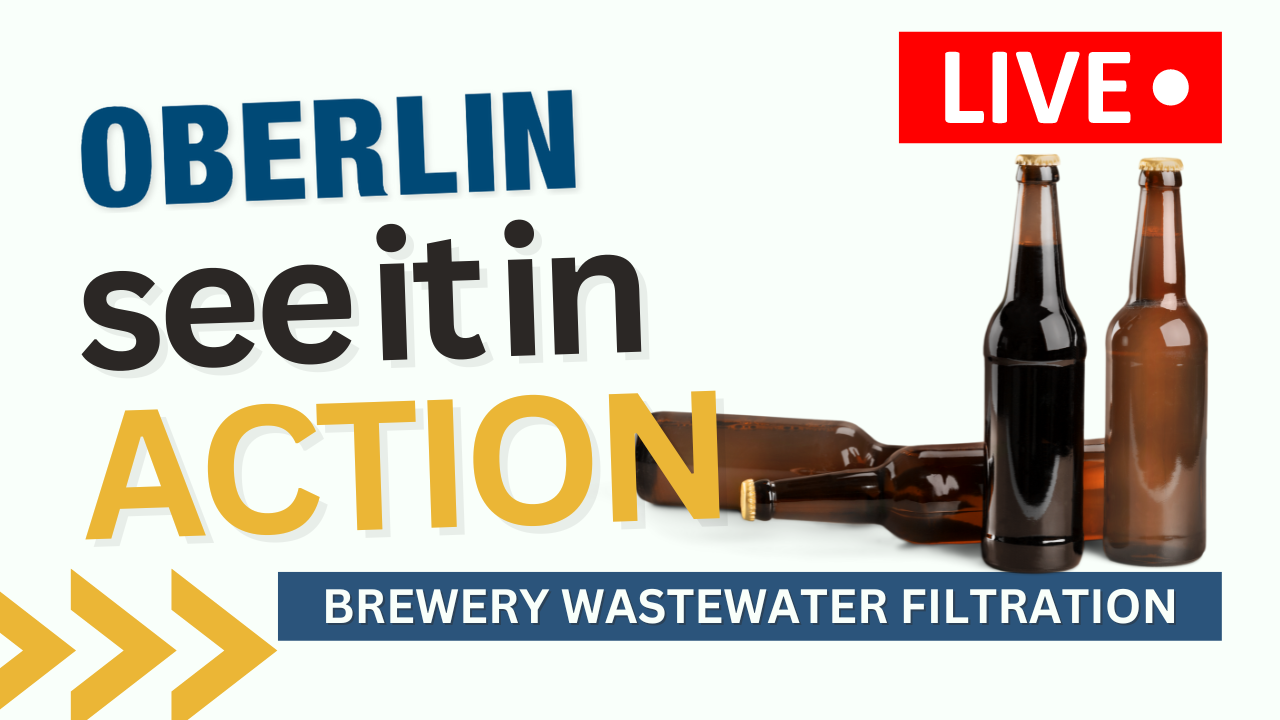
Water coming from Oberlin Filter dewatering diatomite sludge.

The Oberlin Filter dewatering spent DE sludge in a bleach manufacturing process.
Backwash Filtration
Application:
Wherever filter aid is backwashed off candle or pressure leaf filter screens.
Design:
Special open lower platens allow easy access cleaning. Extra flushing and CIP options are available.
Benefits:
Filter cakes will be dry, non-thixtropic. Typically 45-65% solids by weight. Offload solids loads from waste treatment plant by dewatering at source.
